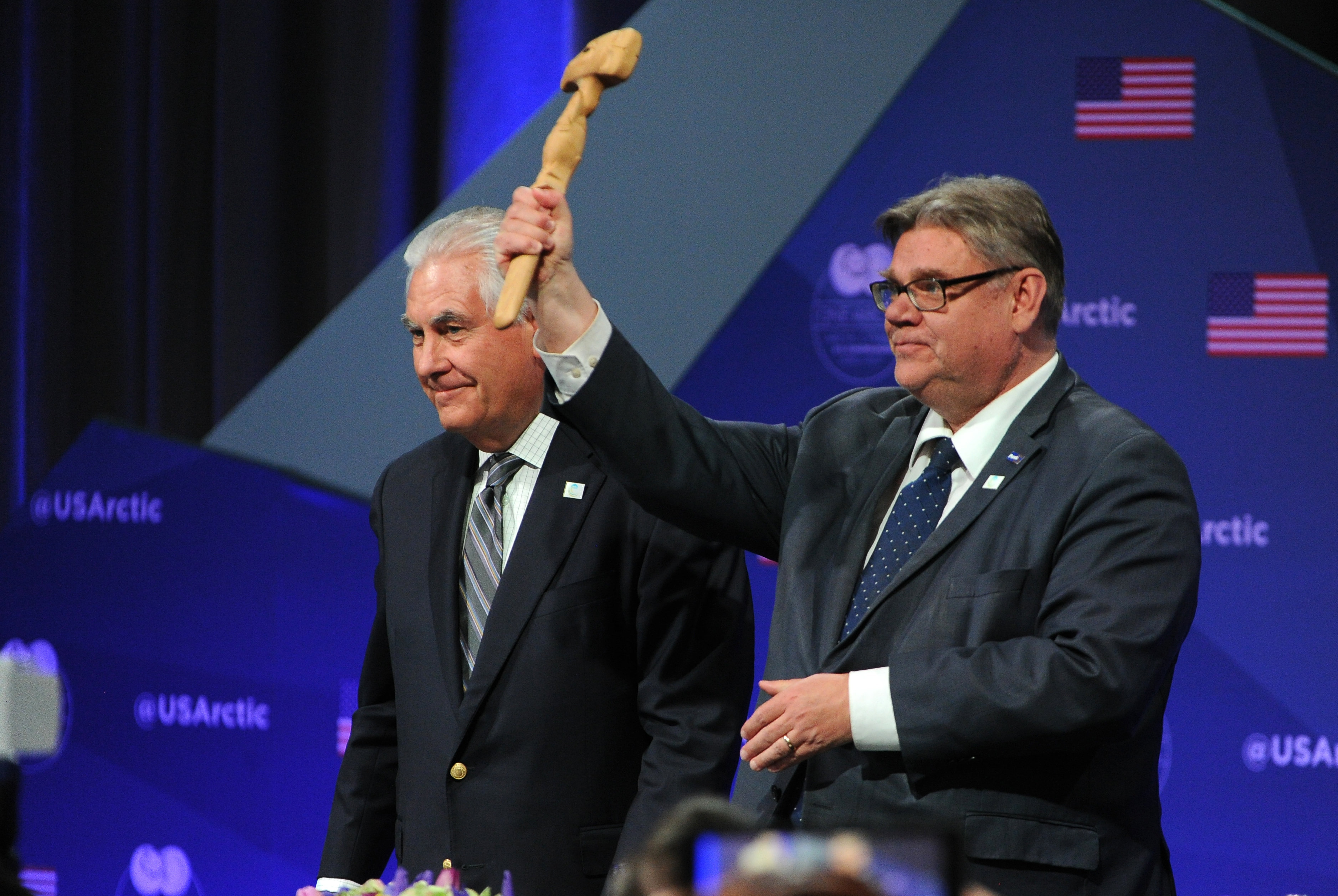Rex Tillerson signed a statement supporting Arctic science. Trump’s budget would cut it.

The Trump administration’s latest budget proposal aims to significantly reduce funding for Arctic climate research, among other environmental programs – a move climate scientists say would be a big mistake.
The budget, which was just released by the White House on Tuesday, includes substantial funding reductions for the National Oceanic and Atmospheric Administration. And among these is a $6 million cut to “eliminate Arctic research” at the agency’s Office of Oceanic and Atmospheric Research. As the budget itself bluntly states, this move “will terminate improvements to sea ice modeling and predictions that support the safety of fishermen, commercial shippers, cruise ships, and local community stakeholders.”
The proposal comes just weeks after the United States participated in a meeting of the Arctic Council, an intergovernmental forum, which prioritized continued research and monitoring of the region and its response to climate change.
The Arctic research program includes projects that monitor sea ice extent, track weather patterns and other atmospheric changes, map the seafloor and manage marine fisheries. Data from NOAA research efforts are used by scientists around the world and are considered a valuable resource for international climate monitoring efforts. And these efforts are vital to our scientific understanding of the changing climate and the Arctic ecosystem, as well as the safety and productivity of commercial interests in the region, scientists say.
“These cuts would do great harm to NOAA’s crucial research to better predict the behavior of Arctic sea ice, and would in turn jeopardize the safety of fishermen, commercial shippers, and cruise ships, not to mention the effects of ice loss on the local ecosystem, acceleration of land-ice melt and northern hemisphere weather,” Jennifer Francis, an atmospheric scientist and Arctic expert at Rutgers University, said in an email to The Washington Post.
NOAA isn’t the only federal agency that conducts Arctic research. NASA, in particular, provides satellite data on changes in the Greenland ice sheet and Arctic sea ice and also conducts field expeditions for mapping and sampling purposes. And the National Science Foundation includes an Office of Polar Programs, which awards grants to Arctic and Antarctic researchers.
Each program has a unique function, and certain aspects of NOAA’s Arctic research program – such as its importance in monitoring and understanding Arctic fisheries and ecosystems and the way they’re affected by climate change and other human activities – may not be fulfilled by other agencies.
The Arctic, which is widely recognized by scientists as the most rapidly changing region on Earth thanks to the effects of climate change, is a valuable scientific indicator of the progression of global warming, and researchers from all over the world have heavily prioritized its study. But the Arctic is also a part of our own nation, noted David Titley, a meteorologist at Penn State and a former chief operating officer at NOAA.
“In many ways, not studying the Arctic would be like not studying the weather and ocean in the Gulf of Mexico, or off the coast of California,” he told The Washington Post in an emailed comment. “It’s U.S. sovereign territory.”
In fact, as Francis pointed out, representatives of the Arctic nations – including Rex Tillerson, the current secretary of state – signed a document this month at a meeting of the intergovernmental Arctic Council reaffirming a number of priorities for the region, including continued climate research and monitoring efforts.
The document states that the council will “recognize the need to increase cooperation in meteorological, oceanographic and terrestrial observations, research and services, and the need for well-maintained and sustained observation networks and continuous monitoring in the Arctic,” among other related goals. According to Francis, the proposed budget cuts “fly in the face” of the priorities to which the United States has agreed in this document.
The Arctic cuts are just one area of significant funding reductions the new budget proposes for NOAA, which amount to about a billion dollars in cuts for the agency altogether. The budget would decrease funding for certain fisheries management and marine research programs, and would cancel many other programs entirely. Those slated for the chopping block include multiple grant programs aimed at helping coastal communities bolster themselves against the effects of climate change and sea-level rise, including the popular Sea Grant program, which helps connect coastal researchers with the communities they serve.
And environmental research at other agencies would also suffer under the new budget. The proposal, for instance, would entirely eliminate the Marine Mammal Commission, an independent agency established in the 1970s under the Marine Mammal Protection Act, which monitors the effect of federal activities on marine mammals – many of which spend at least part of their lives in the Arctic, such as walruses and certain species of seals and whales. In a recent statement, released in response to the new budget proposal, the commission’s chairman Daryl Boness noted that this is “a function performed by no other agency” and expressed concern about the proposal’s potential impact on marine and coastal communities.
And, as in previous iterations of the budget, the Environmental Protection Agency remains at the top of the list when it comes to funding cuts, with a whopping 31 percent reduction proposed.
Experts have suggested that the proposal has very little chance of making it through Congress in its current form.